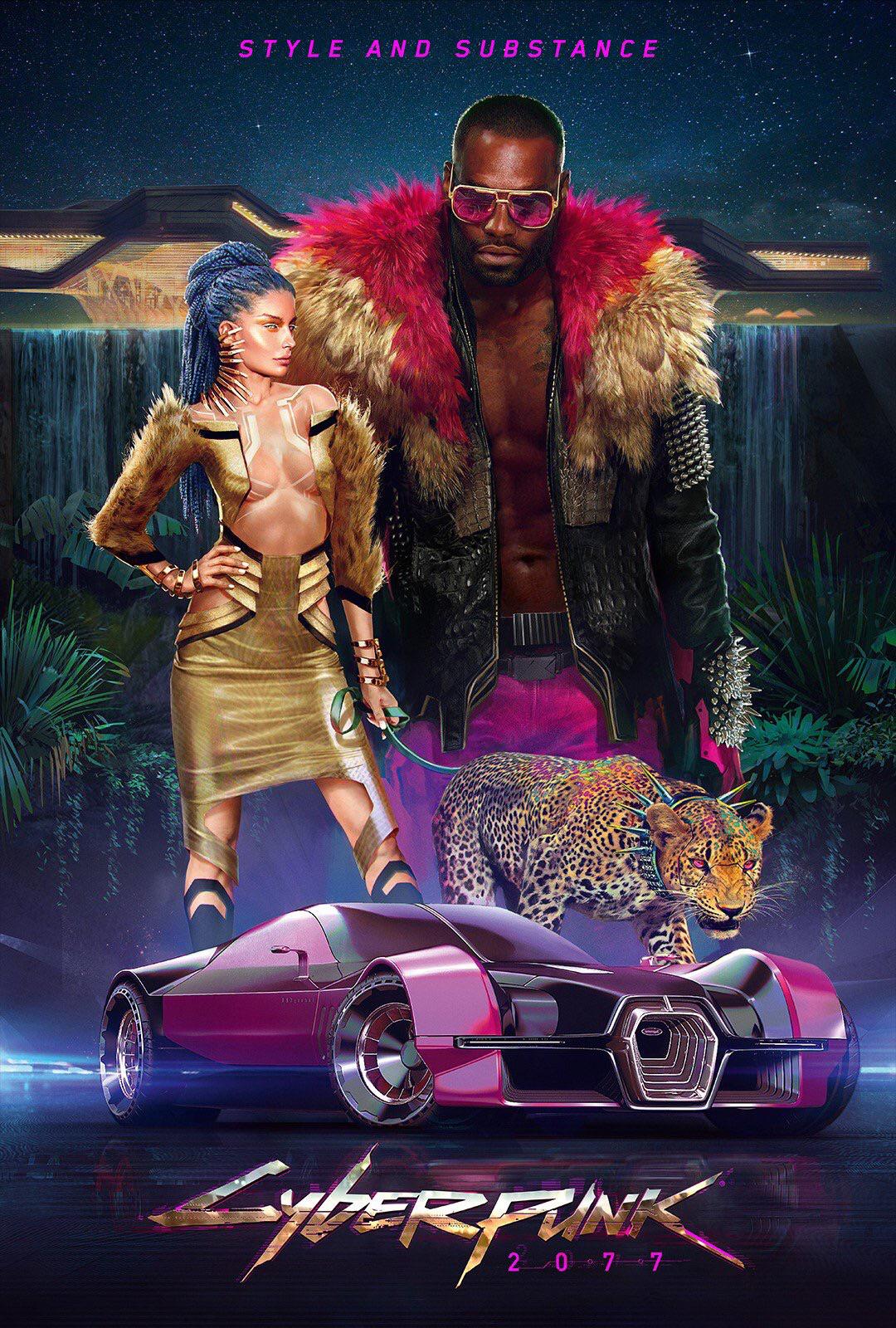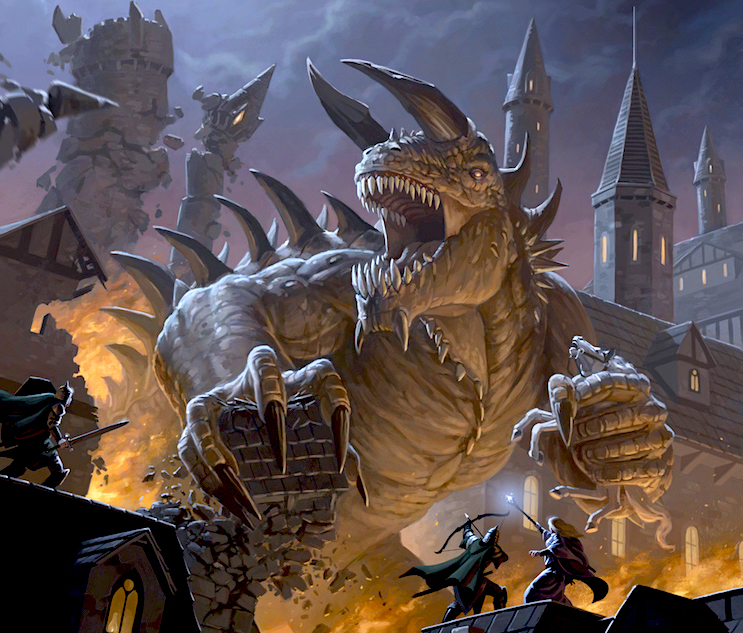Cyberpunk 2077 has been the source of much conversation. It was long-awaited and there much hype preceding its release. The launch didn’t go…swimmingly. There were some well-published bugs, particularly in older consoles. Beyond that people complained about it not being “punk” enough because you can work for the police, or the problems of the social media managers being transphobic, or the fact that they made the developer do mandatory overtime as part of pre-launch crunch, or…. let’s just say it was a rocky start.
I actually played the game via Stadia and had fewer technical problems as a result. Actually playing through the game, I got to appreciate the things that didn’t go wrong with it. I got to experience the tremendously well written story. With lots of heart to it. It is about who you are when you are losing anyway, but you chose how you lose.
It started me thinking about the genre and the games that operate within it. It made me want to talk about those things. I will mainly focus on the TTRPG’s because that is my area of expertise.
The origin
The origin of the genre is literary. Neuromancer(1984) by William Gibson is often pointed to as the beginning of the genre but it is maybe more of a focus point. Prior works like Alfred Bester’s The Stars my Destination(1956), Phillip K Dick’s Do Androids Dream of Electric Sheep(1968), and other science fiction new wave writers laid the groundwork.
That said, Neuromancer and other works by William Gibson, Bruce Sterling, Walter Jon Williams, and others formed the basis for the genre. It featured an interconnected virtual internet, well before the world wide web became ubiquitous. It had themes of capitalist dystopia, transhumanism, identity being malleable and existed in a nebulous nearish future. In many ways, it was a counter-reaction to the nearly utopian futures presented by the classic sci-fi writers under the likes of John W Campbell.
The movies that formed the visual language of cyberpunk were striking. Blade Runner was the obvious one with its noir-inspired vision of a dark future that we see reflected even today. The look of later films like Total Recall and Johnny Mnemonic was inspired by that style. Anime had a lot to do with the genre’s popularity, as well. Akira and Ghost in the Shell are both pointed to as excellent examples.
Table Top Role Playing Games
The Cyberpunk RPG was published by R. Talsorian in 1988, but its second edition, Cyberpunk 2020, was arguably more successful. The combat system was more unforgiving than some gamers were used to. The setting described in the game was pretty closely based on the works of William Gibson, with actual supplements based on When Gravity Fails by George Alec Effinger and Hardwired by Walter Jon Williams. I played a fair amount of the game and enjoyed it. Its later spin-offs, Cybergeneration and Cyberpunk v3, were not as popular. Cyberpunk Red came out this past year and I have heard good things about it but have not had a chance to dig into it.
Shadowrun is the cyberpunk RPG that I spent the most time with. It is not a pure cyberpunk setting. It is set in the future where the oppressive corporations have done what they do in most cyberpunk, where cybernetics is common, but it also has magic entering the world concurrent with that. Elven hackers walk with orc cybered up mercenaries as human shamans cast spells. The compelling setting is what kept bringing me back to this. The rules, however, were often ungainly a bit hard for people to get into.
There is a range of other cyberpunk RPG’s. The Sprawl using Apocalypse World system is a colorful take with the players sort of creating their own cyberpunk setting as part of play. Carbon 2185 is using the 5e rules engine but without any of the magic. Interface Zero, Shadow of the Beanstalk, and many other games also feature a cyberpunk setting. Indeed, many scifi settings that are not normally thought of as cyberpunk have a corner of the setting using elements of cyberpunk.
Elements of Cyberpunk
Cyberpunk is a science fiction setting with some distinct elements. Several films, novels, and games have only some of those elements but still get counted. It is sometimes hard to gauge what elements do add up to being cyberpunk, but here are the major onese.
Capitalism run amok
One of the most prevalent themes in cyberpunk media is the notion that corporations achieve a level of power akin to nations, sometimes even surpassing them. Their power and status allows them to oppress and subvert society. Worker rights, protections for marginalized people, and even basic government services like police and fire services get replaced with what capitalist solutions which are every bit as dystopian any fascist state.
Good thing that would never happen in the real world…..

Transhumanism
Transhumanism is the belief that the human condition and form will be improved by the application of technology. This can be as minor as the use of pharmacology or as advanced as rewired nervous systems and full body replacement. Prosthetic limb replacement is pretty ordinary and common in cyberpunk. This is not just done for the benefit of someone who has lost a limb due to an accident of fate but often sought out for cosmetic reasons. The enhancements to the body is also a source of internal conflict.
IN the game Cyberpunk, and others, the notion of cyberpsychosis is presented as a means to limit enhancements on characters in the game. You get to much enhancement and you become a murderous psychopath. Other games describe it as a loss of humanity.
As with many game-based abstractions, nuance is lost. It was pointed out that the ways were written originally, the rules seem to punish people for getting prosthetic to correct disabilities. It was later clarified this was intended towards more extreme modifications. The idea being that if you alter beyond human norms. Gaining inhuman strength or reflexes was said to detach you from your humanity.
The level of transhumanism varies from media to media, but it is pretty common in the genre.
Classism
Classism is very tied to the “capitalism run amok” theme. Capitalism absolutely results in a separation between socio-economic classes and it is even more evident in cyberpunk.
There are the outcasts, the nomads, and the people who live communally outside the normal society. These are folks who instead of just being poor, are disposed. Maybe they were kicked off the farms because an agro-corpoation bought out their bank and their mortgage. Maybe their city was hit by a nuke or a was destroyed by rising tides. These people exist so far outside of society they become their own.

Then you find the street level poor for whom a coffin-like room is the best they can hope for or work that is both dangerous and exploitative. These are the grease in the cogs of the world that exist to consume, be exploited, and die.
After the poor, you have the criminal caste. In the game Cyberpunk, they are called Edgerunner. In Shadowrun, they are called Shadowrunner. This where most protagonists in cyberpunk games and films exist. They may have started in the street or the like, but have separated themselves by proving themselves with violence or skill. They don’t often live long but they tend to get a better slice of their short lives. At the top end they might become fixers or even ascend further, but that is the exception, not the rule.
Next up are salarymen. The term “salaryman” began in Japan in the 1930’s with the growth of white collar workers and became ubiquitous in cyberpunk during the 1980’s. The term refers to someone who is a loyal corporate worker. That is often a corporate citizen in most cyberpunk media. Most corporations have extraterritorial status. The salaryman class tends to be well off. They have a corporate owned apartment, have a good salary (sometimes in corporate script) so they can afford occasional niceties. They often get free health care with their lifetime indenture. Some even rise to middle management so they can get a taste of power.
The top tier of course is the super-wealthy. Large and wealthy families of people who own or control corporations. Nothing is beyond them. Age reversal, full-body replacements, and murder are all within reach. In many cyberpunk stories, they literally live in orbit to make their status of being above the rest of humanity even more obvious.
Internet or virtual equivalent
Before the world wide web came to be, the notion of the average person using the internet was a bit laughable. The interface was text-only and arcane to anyone not already part of it. The early cyberpunk writers predicted something more graphical, more cinematic, and ubiquitous. Even they couldn’t predict how big it has become.
One of the few predictions they made has yet to become reality. Direct neural interface with machines ist still a ways off but it is a common trope in the genre. Sometimes it is used to share experiences as in the movie Strange Days. In others, it is used as an interface with the internet directly such as in Johnny Mnemonic. It is even used as a means of controlling machines where the human and the machine become one.
Questions of identity
This ties pretty heavily into the theme of transhumanism. When you have direct brain interfaces, androids made of flesh, and artificial memories are possible, what does it mean to be human? In the show, Ghost in the Shell, the major is a full body conversion cyborg with no memory of her prior life. The “Ghost” in the title is essentially the soul. Can you hack a persons soul? If you can rewrite memories, do their souls remember? Do androids with minds as sophisticated any humans have a soul? Are they a person? If you ar coppied for back up, and the back up wakes up, which of you is the “real” you? These kinds of question of a more philosophical nature are a running subtext in most cyberpunk.
Fetishized technology
Technology as branded objects are used a lot in cyberpunk. It mirrors in someways the need for the latest cell phone toy. It is not enough that you got cyber eyes. Did you get the latest Kiroshis or some cheap Russian knock off? You see this in the guns, the cyberware, and the various vehicles in the genre.
It is maybe because of the transhumanism in the game. When you can upgrade your legs like you can upgrade you car, when your body parts can have brands, you care about those brands.
Conclusion
What makes a good cyberpunk game/movie/book is sometimes hard to peg down. It certainly is a mix of those elements I mentioned, but it doesn’t need to be all of them. There are examples of people using all of these elements still not feeling cyberpunk.
One thing that does need to be emphasized, cyberpunk is not a genre of superheroes. The heroes win from time to time, but they don’t save the world. The Tyrell corporation at the end of Blade Runner is still more or less in charge. There may be wins, even some big ones, but the world remains fundamentally broken. Corporations are in charge, society is corrupt, the environment is ruined and what it means to be an individual is a moving target.
That may be the hardest part for some gamers to accept. RPG’s are often power fantasies and defeating the bad guy. Telling them that the bad guy is society and you can’t defeat it can be rough. You can beat some of the bad guys, though, and you can win some of the fights. Cyberpunk is about how you live when you are just doing the best you can in a world you cant beat.



